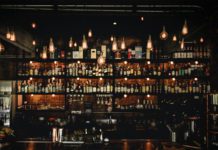Embracing integrated technology systems can help operators to improve customer service and sales, writes Zonal’s Stuart McLean

Business is fiercely competitive. And, with less money in punters’ pockets, those outlets that can provide the complete customer service experience – from booking to final bill – allied to great food and drink, will benefit from repeat spend and positive word-of-mouth.
Get it wrong, and the adverse impact could be highly detrimental to the bottom line.
Recent industry research showed that poor service can have a big impact on business.
Some 73% of people said they would not return to a restaurant, or would be dissatisfied, if table service was slow. Almost as many – 72% – said they would not return to a restaurant, or would be dissatisfied, if their food and drink orders were incorrect.
The statistics underline the weight of pressure on operators to deliver first-class service every time and illustrates why more of them are turning to technology for help.
The rise of consumer devices, driven initially by the Apple range of products, has made this type of technology both affordable and usable.
The key to an efficient operation is ensuring that such devices are seamlessly integrated into an outlet’s EPOS system. This will ensure that important information – relevant promotions, nutritional/allergy facts etc – is immediately available.

Technology can also help avoid embarrassing situations where customers are dissatisfied if a dish suddenly becomes unavailable. Conversely, staff can improve profits by using it to upsell relevant dishes.
Once upon a time, the idea that you could sit in a pub with your mates, order and pay for a round of drinks and have it delivered to your table would have seemed ridiculous. Companies like Zonal have made this scenario a seamless reality, solving the time honoured problem of being able to handle the needs of more people, even with limited bar space. Of course, this will involve a change in business process, but the upside is increased sales.
In an era when the consumer is king, the key is offering the choice that is right for them; they are the ones that will ultimately decide how technology will influence their lives and how they interact with brands.
Looking ahead I can say with some confidence that the pace of change in terms of technology will continue to be dramatic.
[pullquote_right]The key is offering the choice that is right for the consumer. [/pullquote_right]In the years to come, there will be more interaction and increased knowledge of the consumer and their habits, enabling operators to better tailor the customer experience so it perfectly reflects the personal needs of each individual.
It may sound the stuff of Hollywood but the way products and services are marketed to us is already here in the form of personalised retargeting: the technique used online to recapture consumers who visit a site and leave without making a purchase, and cookies that enable tailored ads.
One tool that is very much in the present day is social media.
A recent report from the Foodservice Consultants Society International, UK & Ireland (FCSI) and Allegra Strategies reveals that social media is expected to become an even more important influence in where consumers eat out.
So, a web reservation could be linked direct to your Facebook profile, the table and kitchen management systems, the ordering and payment devices and the customer’s feedback via any medium.
This will enable a totally connected journey that is tracked and monitored in real-time – a truly integrated, seamless process.
• Stuart McLean is CEO of Edinburgh-based Zonal.























